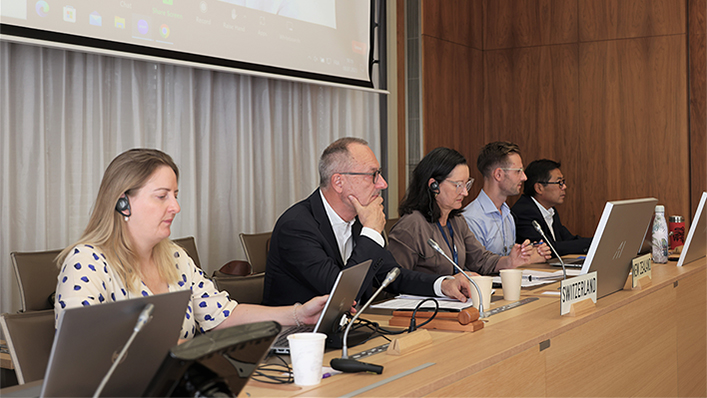
The three areas are: (i) use of WTO mechanisms to enhance transparency on fossil fuel subsidy reform; (ii) further analytical work to identify and categorize fossil fuel subsidies from a trade distorting and environmental harm perspective; and (iii) developing best practice approaches to ensure that any fossil fuel support measures adopted during energy crises remain targeted, transparent and temporary in nature.
The WTO Secretariat presented two factual papers on temporary support measures and phase-out best practices, and on classification of fossil fuel subsidy measures. The papers compile information from existing sources to facilitate members’ understanding on these issues.
Members highlighted their own experiences in adopting temporary measures in the context of the energy crisis. They also underlined the importance of such measures remaining targeted, transparent and temporary, and supported further work to compile best practice guidelines for policy design. Some delegations underlined that it was important not to lose sight of the major fiscal burden of fossil fuel subsidies, which the Organisation for Economic Co-operation and Development (OECD) and the International Energy Agency (IEA) had estimated at almost USD 700 billion in 2021.
Reflecting on classifications of fossil fuel subsidies, members pointed to the need for further work on better understanding the impacts of fossil fuel subsidies. In this regard, they welcomed further analytical work to identify and categorize support measures from a trade distorting and environmental harm perspective.
On using WTO mechanisms to enhance transparency, the WTO Secretariat presented research on the nature of information provided on fossil fuel subsidies and questions asked by members as part of the WTO Trade Policy Review (TPR) process. In the subsequent discussion, the importance of enhancing transparency, including by making better use of existing WTO mechanisms, was highlighted, with some noting the opportunity for further cooperation among participants to achieve this.
Other international processes working on issues related to fossil fuel subsidy reform were invited to provide updates to members. The United Nations Environment Programme (UNEP) provided an update on reporting under UN Sustainable Development Goal 12.c, focused on rationalizing inefficient fossil fuel subsidies that encourage wasteful consumption. UNEP reported on the gaps in data collection that remain and encouraged continuous communication on this indicator in order to build awareness and momentum for reporting.
The United Nations Framework Convention on Climate Change (UNFCCC) briefed participants on preparations and priorities for the upcoming UN Climate Change Conference, COP28, to be held from 30 November to 12 December. UNFCCC highlighted ongoing work related to the clean energy transition and linkages to fossil fuel subsidy reform.
The FFSR initiative will reconvene in the autumn to continue its work and preparations for MC13.
More information about the FFSR initiative is available here.
Share
Reach us to explore global export and import deals